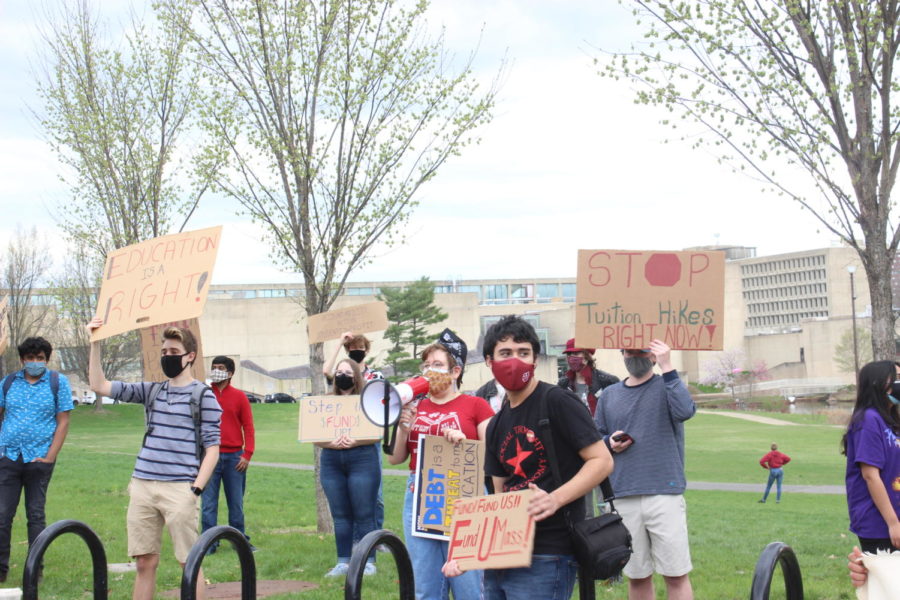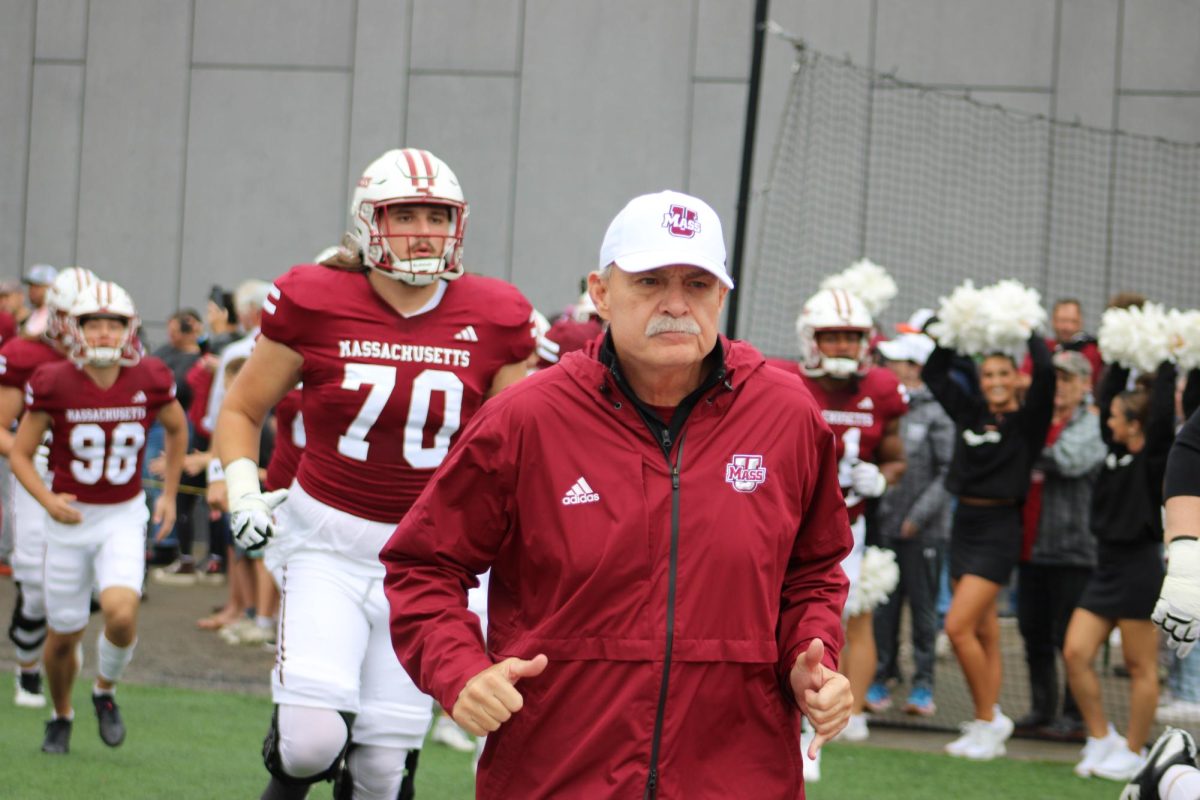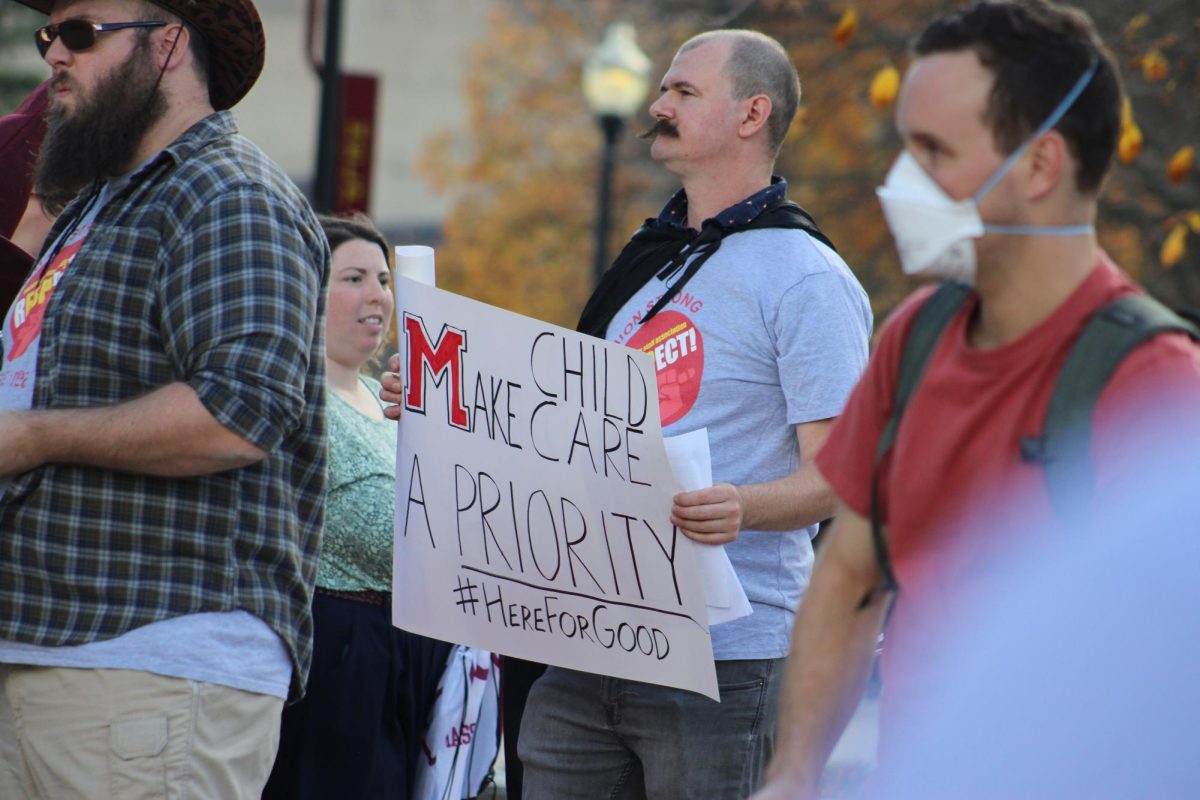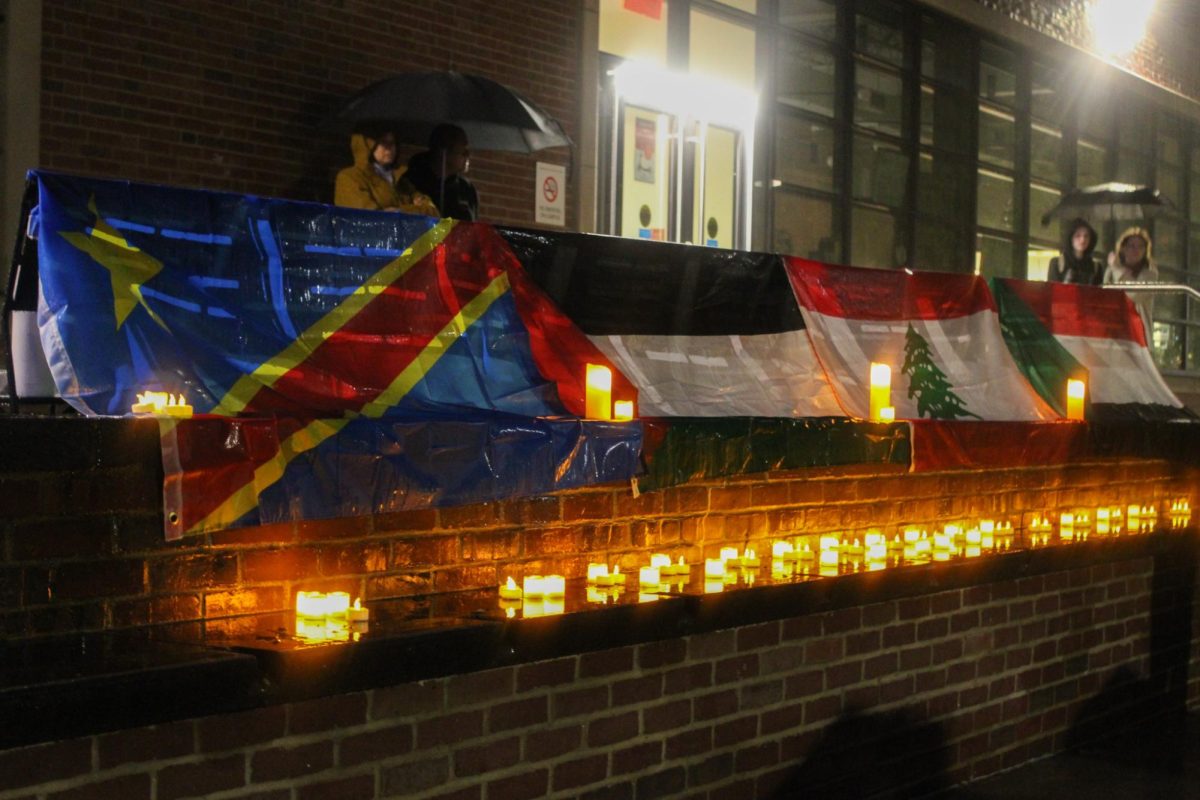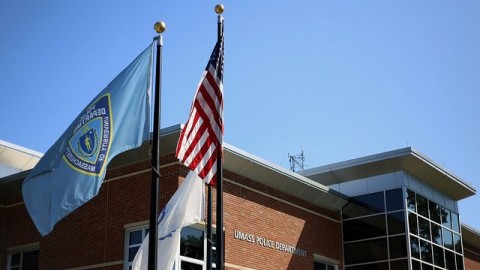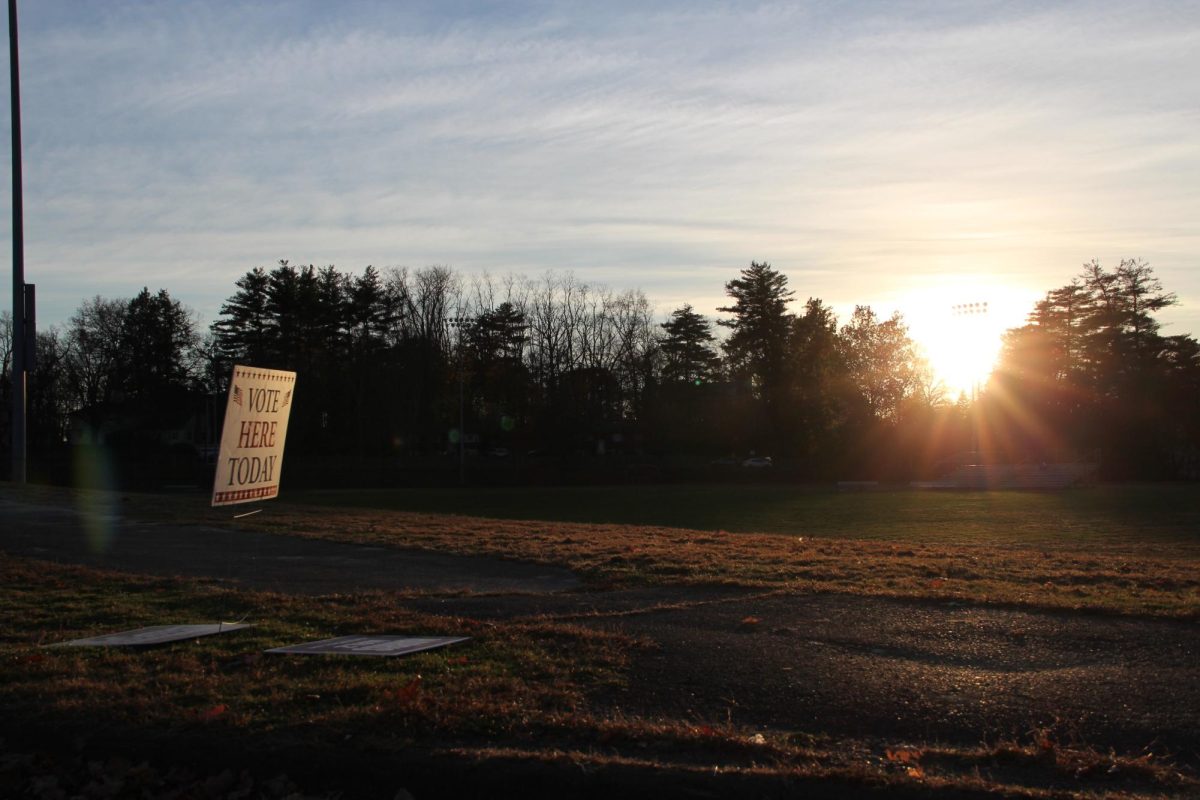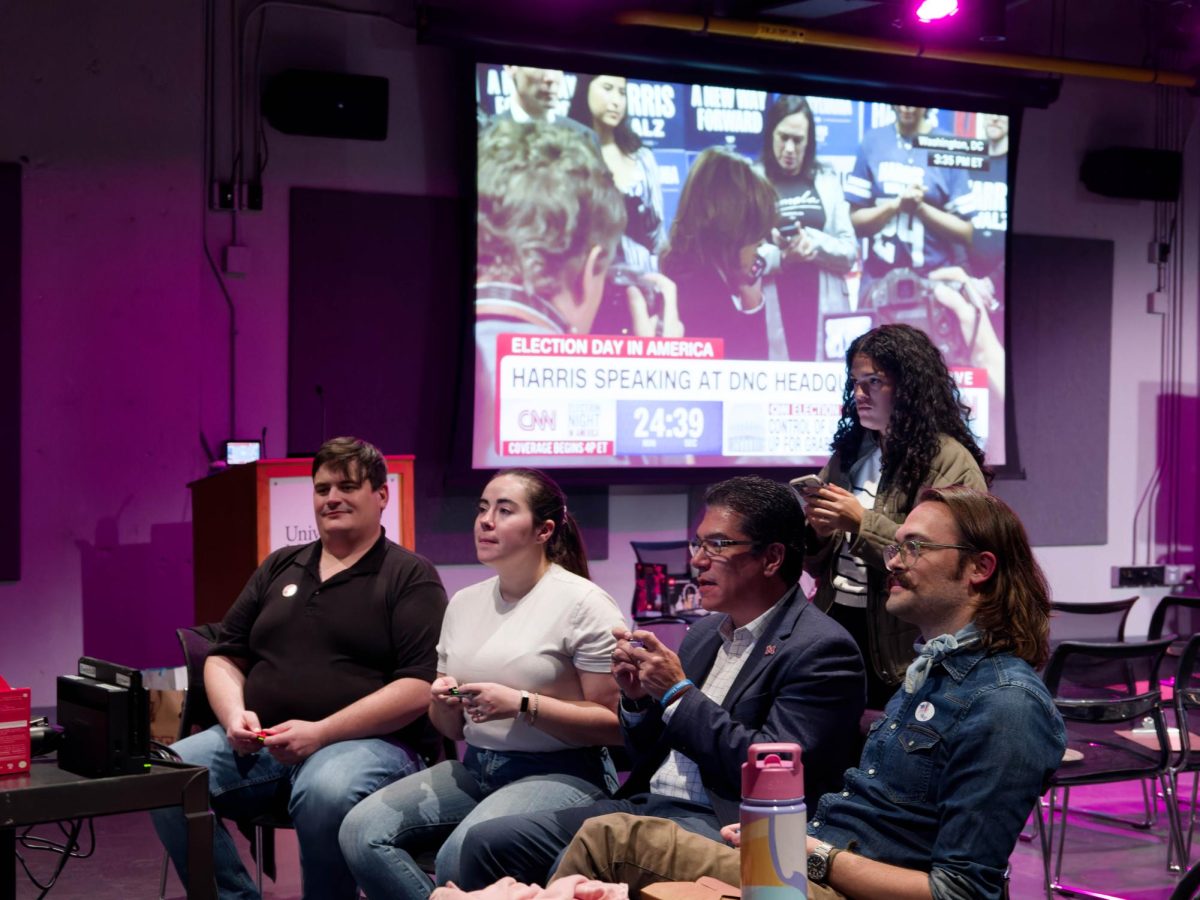During their meeting Wednesday morning, the University of Massachusetts Board of Trustees voted to increase tuition for out-of-state students campus and residential costs. The change will go into effect for the 2021-2022 academic year.
In protest, a group of students and staff gathered Wednesday afternoon in front of the Integrative Learning Center to speak out against the decision. Representatives from the Professional Staff Union, University Staff Association, Graduate Employment Organization, United Auto Workers, Massachusetts Society of Professors, Resident Assistant and Peer Mentor Union and Debt Free Future campaign attended and spoke at the protest.
Andrew Gorry, assistant director of communications & content strategy for the College of Information & Computer Sciences, represented the Professional Staff Union at both the BOT meeting and the rally outside the ILC.
“What I think is really important is that we wanted to show this University that students and staff and faculty are standing together,” Gorry said. “We’re all, as students and staff and faculty, suffering the same consequences of the decisions that the Board of Trustees have made and the decisions that UMass Amherst administrators have made. So us standing together today was, I think was really important and we’re gonna keep doing that moving forward.”
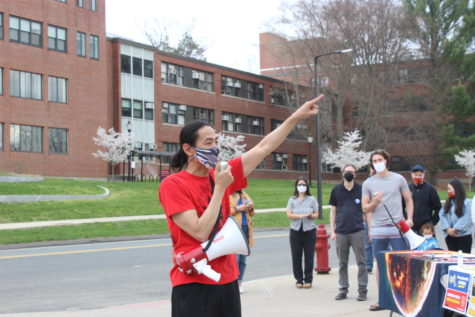
Tuition will be frozen for in-state undergraduates and graduate students, while out-of-state students will experience a 1.5 percent increase in tuition of $537. All students will be subject to an increase in residential fees of $266. Amherst is the only of the UMass campuses to receive a tuition increase for out-of-state students.
“[The Center for Education Policy and Advocacy is] focused on making education a right for all UMass students, for all students in general and people in general, because it’s a public institution, and it should be free,” said CEPA staff member and junior Aidan Mazagonwalla. “People are in so much dept.”
Of the Board vote, Trustee Stephen Karam, chair of the Committee on Administration and Finance said, “this action just demonstrates our commitment to keeping University of Massachusetts affordable.”
The vote passed with only three abstentions and one “No” vote from the UMass Amherst student trustee, Tim Scalona, a graduate student in the School of Public Policy.
Before voting “No,” Scalona commented, “While I understand that we are in a very, very tough time, the fact that, in my opinion, that we’re raising tuition for out-of-state students at UMass Amherst, still in the pandemic, with federal surplus is not something that I personally feel like I can put up for as student representative.”
I don’t feel like I can represent 22,000 students and their experiences with tuition increases that affect them adequately. I feel like they should have a place to speak as well on this too,” he said.
Student requests to speak during the meeting about the proposed tuition increases were denied. According to an email received by legal studies and psychology double major Gil Kim, her request to speak was denied “due to the Board’s full meeting agenda.”
The email cited that “Per the Board of Trustees By-Laws, T91-100, Article II, Meetings of the Board of Trustees, Section 3, Agenda of Regular Board Meetings; and per MGL c. 30A, 940 CMR 29.00, and the Open Meeting Law Guide and Educational Materials of the Massachusetts Attorney General: Members of the public wishing to speak on an agenda item shall forward a request to the Secretary no later than twenty-four hours prior to a meeting. The Chair shall have complete discretion in granting or denying request to speak as time permits.”
“These [Board] meetings during this pandemic, they have no time for public comments, largely closed. So, it’s basically them sitting there behind their screens, telling us what they want” said Hoang Phan, program director of the Social Thought and Political Economy Department.
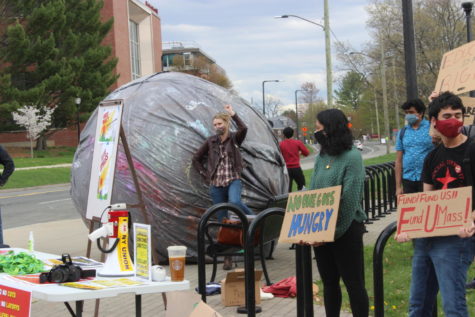
At the protest, a large asteroid was featured as a piece of artwork made by Phan.
According to Eve Weinbaum, president of the Massachusetts Society of Professors, the asteroid symbolized a comment made by UMass Trustee Michael O’Brien during the last Board meeting. She said that, when speakers asked the Board if it would be appropriate to use the University’s reserve funds to help respond to the pandemic, he said using the reserve funds would be appropriate to use if an asteroid hit the University.
According to Weinbaum, the University has reserve funding accumulated from over many years. Many of the speakers advocated for the University to use tap into this funding instead, rather than increasing tuition costs on students.
“You know, how could that money be used? It could bring staff back, it could fully staff our University so that we have the ability to support students to support faculty and to support the research that’s done here,” Gorry said. “It could be used possibly to notraise fees and tuition for students.”
According to John Hoey, who directs communications for the UMass President’s Office in Boston, the fund activists are referring to the University’s endowment fund, comprised of thousands of donations often used for specific purposes.
“The nature of endowed funds is that they are invested and the annual proceeds of those investments – $30 million per year – are spent on programs, scholarships, etc. in perpetuity,” Hoey said. “This is critical to the long-term financial stability of the University.”
Hoey added, “The 1.5 percent increase in out-of-state student tuition amounts to less than inflation.”
Regarding the budget, Karam stated during the Board meeting that the University has requested a 4.9 percent budget increase from the state that would go towards expanding student mental health services and financial aid. He also presented a slide about the federal aid received by the University system, saying that “the projected $119 million in institutional federal aid only covers about half of the revenue loss experienced in this fiscal year alone.”
“The University would not exist the way that it does if the students were not here, if the faculty were not here, if the staff were not here,” said Nathalie Irmer, a graduate student in regional planning and public policy. “We don’t not only fund this University with our money, but also with our experiences and our stories that they often profit off of an exploit for their own gain.”
Leigh Appelstein can be reached at [email protected]. Follow her on Twitter @LAppelstein. Irina Costache can be reached @[email protected] Follow her on Twitter @irinaacostache.
Editor’s note: Tim Scalona is a contributor to the Daily Collegian. Irina Costache sits on the board of the Public Higher Education Network of Massachusetts, which is affiliated with the Debt Free Future campaign. PHENOM was not involved in the organizing of this event.

